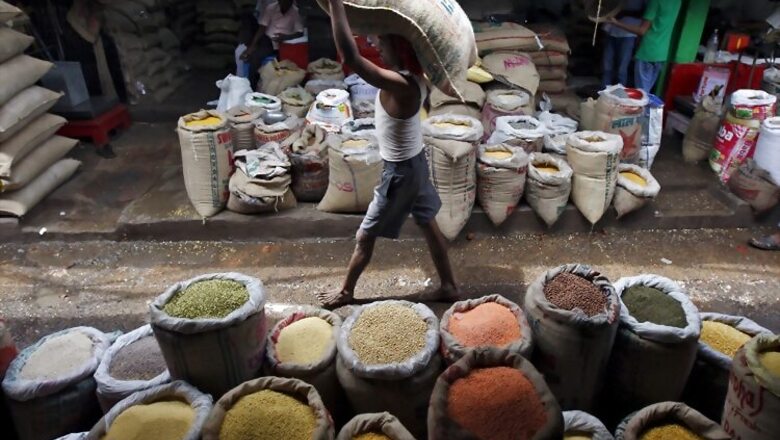
views
The government has so far purchased around 1.34 lakh tonnes of pulses and nearly 30,000 tonnes of oilseeds from farmers worth Rs 785 crore during the ongoing marketing season of rabi (winter) crops.
State-owned Food Corporation of India (FCI) and cooperative NAFED procured pulses and oilseeds at the minimum support price (MSP), on behalf of the government.
"As on 16th April 2020, a quantity of 1,33,987.65 tonnes of pulses and 29,264.17 tonnes of oilseeds was procured by NAFED/FCI valued at Rs 784.77 crores through which 1,14,338 farmers have been benefited," an official statement said.
During the lockdown period 97,337.35 tonnes of rabi pulses and oilseeds have been procured under the price support scheme (PSS).
"Procurement of notified commodities at minimum support price (MSP) from the farmers in several states in the rabi 2020-21 (marketing season) has started. Farmers are being given timely marketing support in the time of lockdown," the statement said.
The procurement of rabi pulses and oilseeds from farmers under the PSS scheme is currently in progress in Karnataka, Andhra Pradesh, Telangana, Rajasthan, Maharashtra, Uttar Pradesh and Haryana.
Toor is being procured from farmers by NAFED at MSP under the price stabilisation fund (PSF) scheme and also for the buffer stock of pulses.
Toor procurement under PSS/PSF kharif (summer sown) 2019-20 marketing season is also underway in Maharashtra, Tamil Nadu, Gujarat, Andhra Pradesh and Karnataka and Telangana.
Total procurement of toor (arhar) during kharif marketing season 2019-20 is 5,32,849 tonnes, out of which 29,328.62 tonnes of toor has been procured since the lockdown period.
Procurement of mustard seeds and gram has started in Haryana in 163 centres. Limited numbers of farmers are being called everyday to maintain social distancing. About 27,276.77 tonnes of mustard seed has been procured from about 10,111 farmers in the first two days.
Preparations have been made for procurement of gram, masoor and mustard in Madhya Pradesh and farmers have been informed to bring their produce to the procurement centres.


















Comments
0 comment